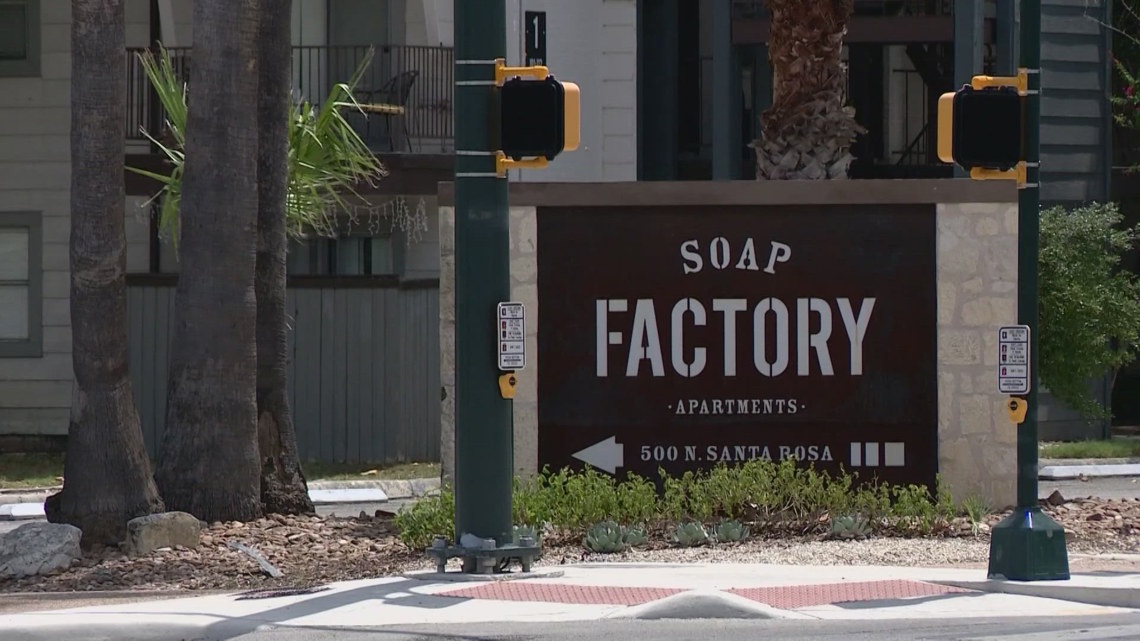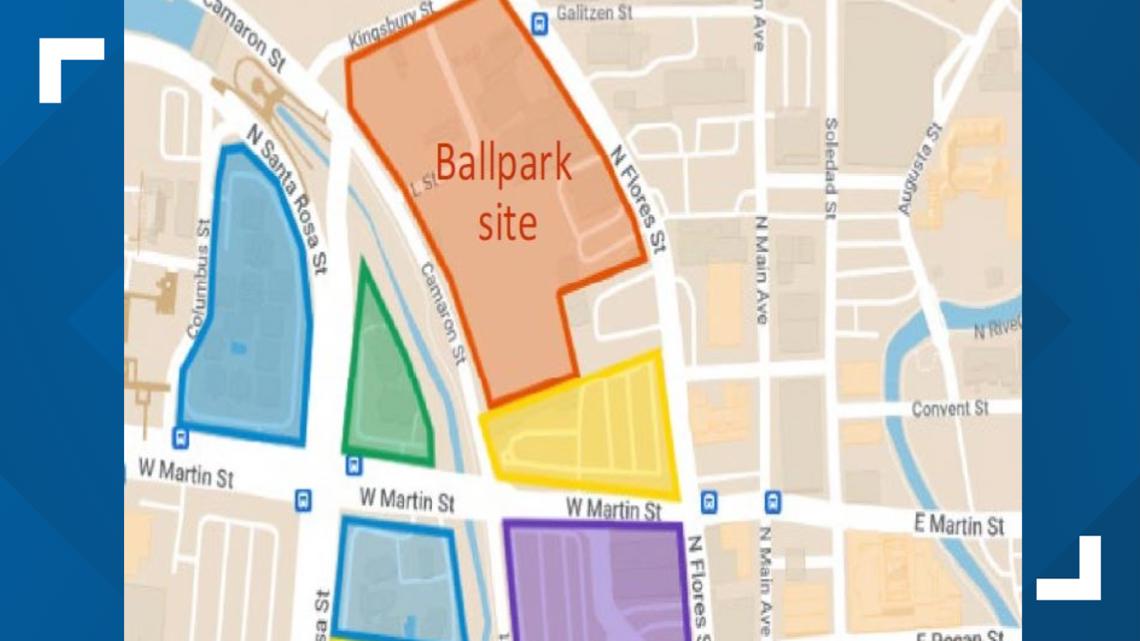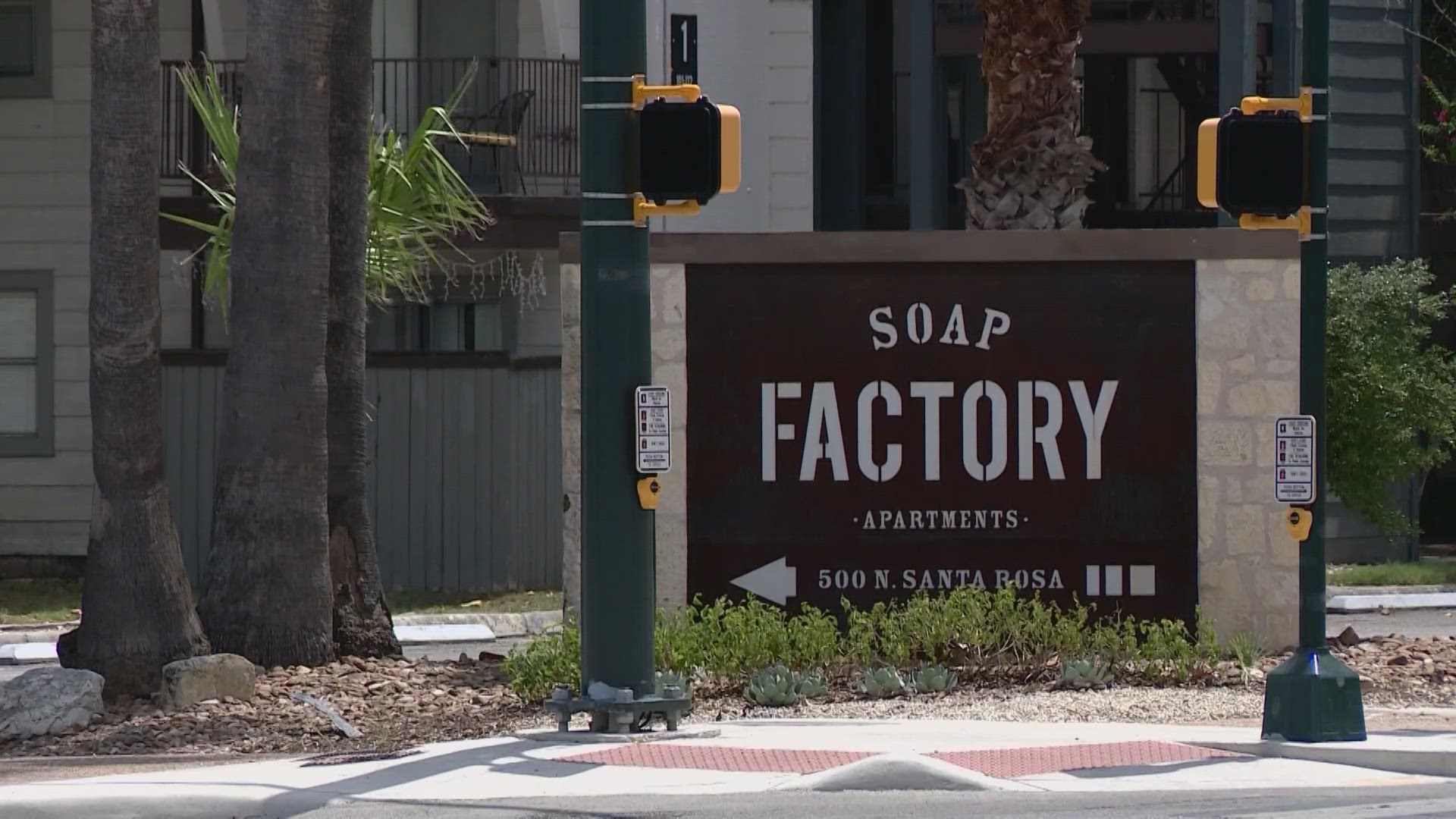SAN ANTONIO — The City of San Antonio has stepped into the batter's box of its plan to construct a modern stadium for the Missions minor league baseball team downtown. After City Council voted 9-2 on Thursday to approve an agreement and funding plan for the stadium, it can start moving towards the metaphorical first base of its plans.
City Council had requested a delay to fine tune their plan, having previously been scheduled to vote on it Sept. 5. Now the governing body voted to enter into a memorandum of understanding with the county and a local developer to continue plans for an approximately $160 million ballpark—a plan that calls for the demolition of the nearby Soap Factory Apartments to make room for new development.
The agreement was approved in a packed council chambers after dozens of speakers voiced thoughts on both sides of the issue. District 5 Councilwoman Teri Castillo and District 2 Councilman Jalen McKee-Rodriguez voted against the proposal, the latter saying it was "incredibly disappointing and incredibly disgusting" that Soap Factory tenants were "an afterthought" in the process.
The MOU, the city hopes, fulfills Major League Baseball's request for a "more binding detailed commitment" that the league asked to have by Oct. 15, following local leaders submission of a letter of intent this summer.
The agreement includes a more detailed plan to relocate residents of the Soap Factory Apartments complex, which would be demolished to make way for the new ballpark and surrounding development. That possibility led to backlash from tenants and concern from City Council members at a special meeting last month.
That criticism was sparked anew Thursday, when several Soap Factory residents and advocates spoke out against the plan, saying tenants weren't getting a fair deal.
In a presentation on the deal, city staff said the displaced residents will receive a "rental relocation package" funded by both the city and developer Weston Urban. The plan, which Weston Urban's CEO called "unprecedented," involves provided affected residents with a $2,500 relocation stipend, with no income restrictions. It would apply to current residents only.
"Had there been no city involvement in this deal, the redevelopment in that property could result in terminating leases, could result in displacement, could result in a number of things we would have no say in," Mayor Ron Nirenberg said.
About 189 tenants will be impacted by the first phase of Soap Factory demolition, which would start next fall.
Many residents and advocates recognized that city leaders badly want the new stadium, but implored them to slow down and reconsider the residents' needs.


"We are not just units in a complex; we live and work here," said Phillip Adcock, one of those tenants. "Displacement will have severe negative impacts on our employment, transportation, education, safety and all other aspects of our lives for generations to come."
Adcock called for a delay in the vote and a freeze on all rent and fees for residents. Castillo, additionally, said her office had been researching the impact of baseball venues in the country, finding that promises often made “do not materialize.”
Citing the Frost Bank Center, Alamodome and Wolff Stadium – the Missions’ current home since 1994 – she suggested that San Antonio has seen a pattern of building sports venues that don’t go on to bring economic “prosperity” to the neighborhoods they’re constructed in.
McKee-Rodriguez, calling the evolution of ballpark discussions "a case of thinking that you know better than the people that you serve," motioned to delay the vote once again in order for Weston Urban to further meet with tenants. But that proposal failed, 4-7.
'This stadium is needed'
Conversely, the ballpark plan was supported by many members of the community who spoke Thursday, including business owners, baseball fans, other downtown neighborhood residents and students.
Keith Smith, a season ticket-holder since the Missions stadium opened in 1994, says this is a welcome change to re-invigorate the baseball community.
"This stadium is needed by the city. Baseball is a part of San Antonio and a new stadium will lead to wonderful things," Smith said.
The initial proposed agreement, presented to City Council on Aug. 29, divided the demolition up into three phases while giving tenants the option to move into a different development still being built. The updated agreement Thursday offers a more detailed plan to help Soap Factory tenants, including a bilingual outreach and engagement effort; financial help for tenants moving elsewhere on the complex before demolition; and the promise that tenants will be able to end their lease early with no penalties.
The updated agreement also adds a provision saying the Missions won't conduct background checks on prospective hires "until after an interview and an offer is made."
The baseball field at nearby Fox Tech High School must still be acquired in order to move forward with the project, leaders say, adding negotiations with San Antonio ISD are still ongoing.


City officials say they expect the still-unnamed ballpark to be built by Opening Day 2028; the start of the season typically comes in April. The ballpark would have 4,500 seats with a maximum capacity of 7,500, and it would be paid for by the Missions and bonds issued by the newly created San Pedro Creek Authorities, which would own the park.
Leaders are hoping the ballpark at the intersection of Camaron and Kingsbury streets would help rejuvenate downtown, saying it would bring with it new development from the restaurant and hospitality industries with a taxable value of around $1 billion. That work would be constructed in several phases through the start of the next decade.
“There’s a lot of work to do between now and Opening Day of 2028," Weston Urban CEO Randy Smith said on Thursday. "That might seem really far off to some. But we feel like it’s gonna be here in a minute, and we have to hustle.”
Bexar County Commissioners Court must still approve the agreement. It's unclear when that vote might take place.

